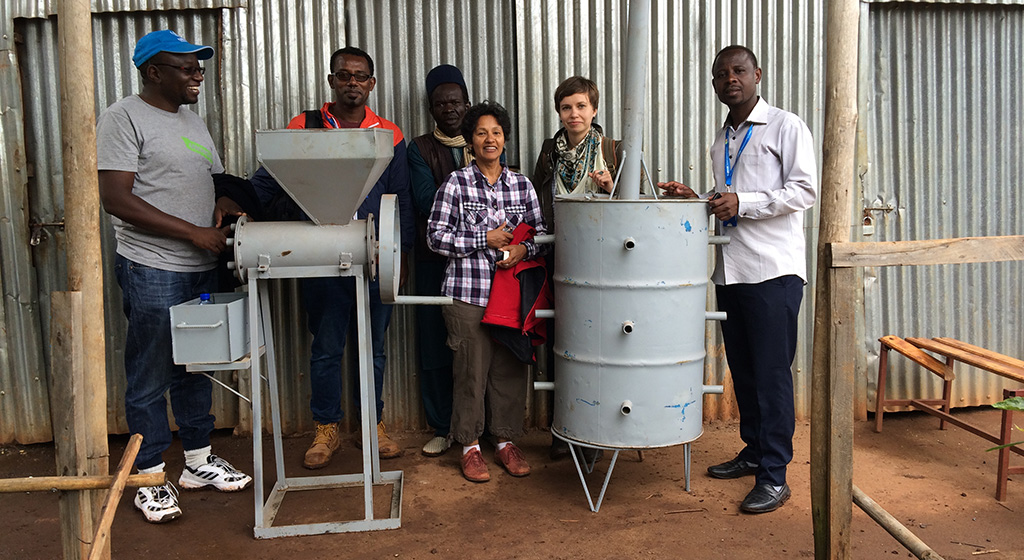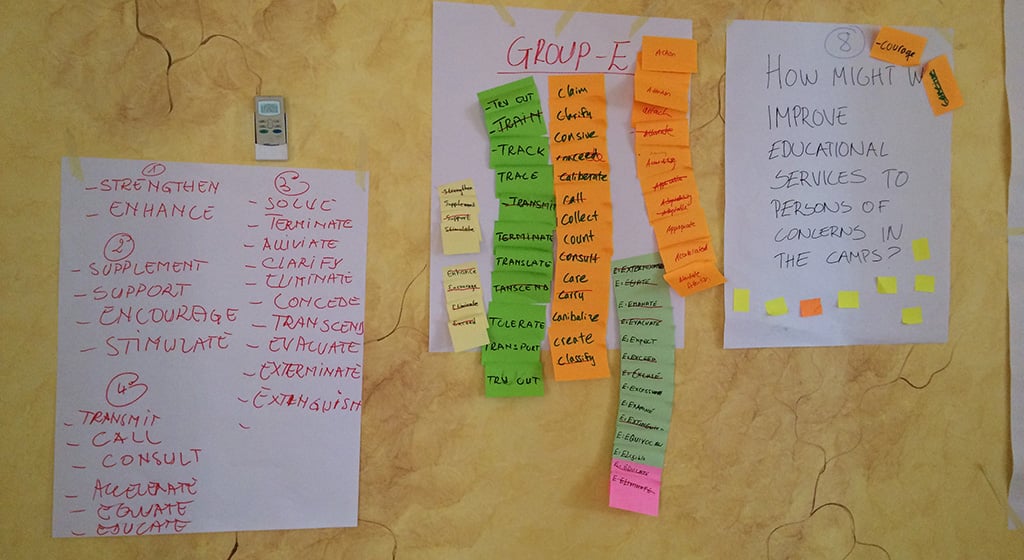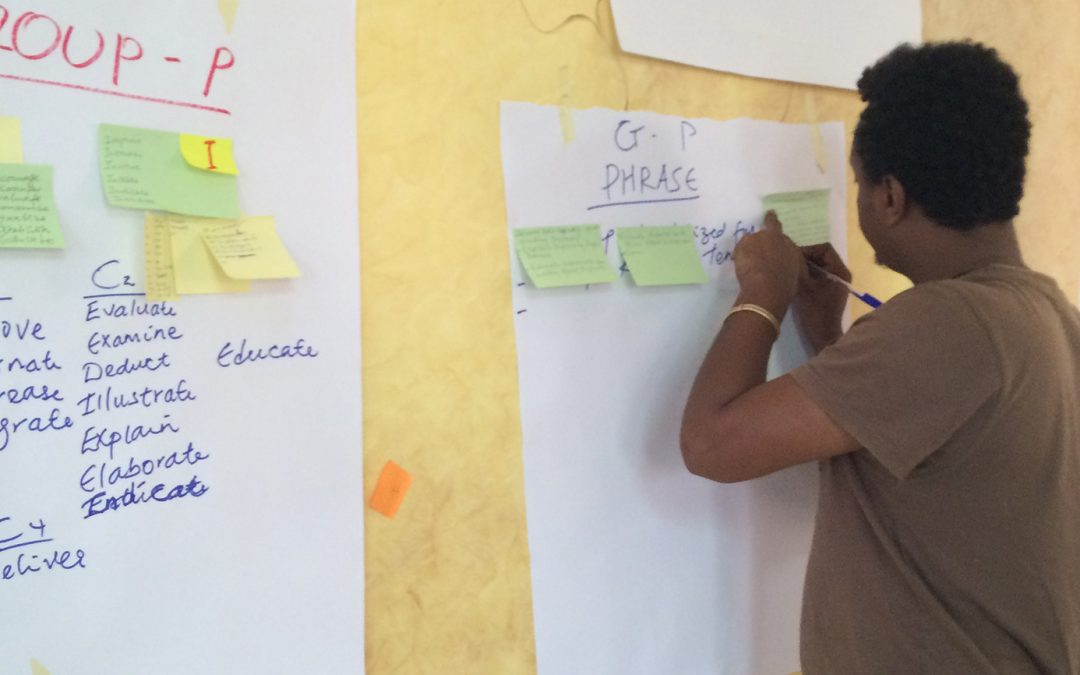As an Assistant Water, Sanitation and Hygiene (WASH) Officer, I am constantly reminded of the unmet needs of the refugee population. I work in UNHCR’s Assosa sub-country office in Ethiopia, where I’m responsible for developing strategies for water systems, waste disposal, energy and environment for four refugee camps located near the Sudanese border. Solid waste disposal has been a challenge here for many years, and with dwindling financial resources at our disposal, we have no choice but to start thinking of more cost-effective and durable solutions.
Instead of seeing waste as a problem, I took it as the opportunity to find new ways to assist refugees. In 2014 I started working on a plan to use solid waste to manufacture briquettes for cooking. This “waste-to-value” initiative would not only address waste disposal, but also energy, environmental protection and livelihoods. A few months later, I was fortunate to be selected as an Innovation Fellow to develop my project.

Simeneh (second from left) stands with a prototype of his briquette-making machine.
In January 2016, the Innovation Fellows met in Bangkok for a week-long workshop, where I learned how to define my challenges, generate ideas, prototype and scale up my projects. This was a real paradigm shift for me, because learning about innovation brought me to think very differently about working with refugees. I realized that the existing framework for assisting refugees doesn’t leave much room for thinking outside the box and for self-criticism. This means we risk replicating the same mistakes, or not prepare adequately for change. By contrast, the innovation process allows us to think independently and address problems in a very efficient and timely manner.
People understandably enjoy working within their comfort zone, but this leaves little room for our ideas to be criticized and challenged.
After completing the workshop, I thought the entire Assosa operation could benefit from incorporating the innovation process into our activities. This meant that staff had to undergo their own training. That is how UNHCR Assosa hosted a two-day workshop in May 2016 in collaboration with UNHCR Ethiopia, UNHCR Assosa and UNHCR Budapest team, during which the basics of the innovation process were shared with my colleagues. We looked at the specific challenges faced by our sub-office, identified the needs of the refugee population, and analyzed how the innovation process could help us come up with durable solutions. In the end, we developed an action plan whereby all the heads of sectors and field units committed to working on their own challenge and submit their respective solutions by October 2016. We were lucky enough to be able to rely on the experience of four Innovation Fellows, including myself, who have been working on different initiatives in Ethiopia dealing with sanitation, energy, environment and livelihoods. This is giving us invaluable insights into how innovation can be applied to the Ethiopian context.

The workshop has already led to concrete actions. For instance, our operation had budgeted to build 15 family latrines in three different camps as a way to improve sanitation, yet we knew this wasn’t enough to meet the needs of thousands of households. By using the innovation process, we changed our strategy and decided to focus on delivering latrine slabs to families and let them build the overall latrine structure. This enabled us to plan for a total of 882 latrines, resulting in considerable cost savings for the operation. The latrines should be built by the end of the year.
By using the experience of previous and current Innovation Fellows in Ethiopia, as well as incentivizing our staff to use these new tools and techniques, I’m hoping Assosa will become a model operation in the innovation process for the entire region, and perhaps later on at a global level.
We’re always looking for great stories, ideas, and opinions on innovations that are led by or create impact for refugees. If you have one to share with us send us an email at [email protected]
If you’d like to repost this article on your website, please see our reposting policy.

